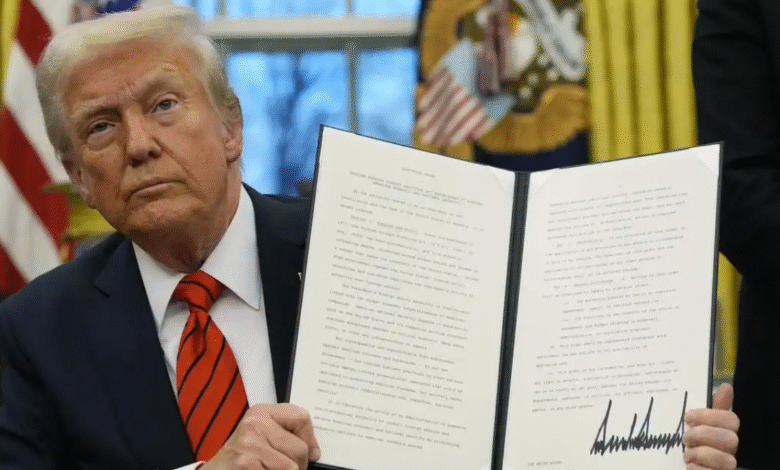Trump FCPA Foreign Bribery Enforcement Pause: Unpacking the Decline in Corporate Accountability

Explore the Trump FCPA foreign bribery enforcement pause, its impact on global anti-corruption efforts, and how companies responded to the regulatory shift.
The topic of the Trump administration and its handling of the Foreign Corrupt Practices Act (FCPA) has stirred serious debates in legal, political, and corporate circles. During Donald Trump’s presidency, speculation mounted about a potential slowdown—or even a deliberate pause—in foreign bribery enforcement efforts. This concern wasn’t entirely unfounded, especially considering Trump’s outspoken criticisms of the FCPA and a notable decline in high-profile prosecutions. In this article, we’ll dive deep into how the Trump era impacted the enforcement of the FCPA, its implications for global anti-bribery initiatives, and what it could mean for the future.
The Foreign Corrupt Practices Act: A Brief Primer
Before we get into the Trump FCPA foreign bribery enforcement pause, it’s important to understand what the FCPA actually is. The FCPA is a United States law passed in the late 1970s designed to prevent American individuals and companies from bribing foreign government officials to gain or retain business. It’s jointly enforced by the Department of Justice (DOJ) and the Securities and Exchange Commission (SEC).
Over the decades, this law has evolved into a cornerstone of global anti-corruption efforts. It holds corporations accountable for unethical practices, even if those actions take place overseas. Under previous administrations, both Democratic and Republican, FCPA enforcement was a key priority. Major corporations faced hefty fines, executives were prosecuted, and international cooperation increased.
But then came Trump.
Trump’s Public Criticism of the FCPA
Donald Trump made no secret of his distaste for the FCPA. Long before taking office, he openly criticized the law, calling it “a horrible law” that puts American businesses at a disadvantage. He argued that it hampers U.S. companies from competing in markets where bribery is simply the norm.
This wasn’t just political rhetoric. Trump’s disdain for the FCPA signaled a potential shift in enforcement philosophy. If the president himself views a law as detrimental, it logically follows that his administration may deprioritize its enforcement. And that’s exactly what many observers believe happened.
Signals of a Slowdown in Enforcement
The Trump FCPA foreign bribery enforcement pause didn’t manifest as a formal policy shift. There was no executive order suspending prosecutions or regulatory rollbacks to dilute the law. Instead, the signs were subtle—like fewer big-name prosecutions, longer gaps between announcements of new cases, and reduced public commentary from DOJ and SEC officials.
For context, during the Obama years, FCPA enforcement reached unprecedented heights. Multinational companies paid billions in fines, and international coordination on bribery investigations became the norm. But under Trump, there was a noticeable decline in activity. This wasn’t just anecdotal; data from enforcement reports support the claim.
The DOJ’s Changing Tone
One of the clearest indicators of the Trump FCPA foreign bribery enforcement pause was the DOJ’s shift in tone. Trump-appointed officials emphasized corporate cooperation and self-reporting but offered fewer threats of aggressive prosecutions. The message to companies was clear: If you come forward, you’re less likely to face harsh penalties.
This carrot-over-stick approach was pitched as a way to encourage compliance. But critics argued it effectively weakened enforcement. If companies believe they can self-report and avoid consequences, the deterrent effect of the FCPA diminishes.
SEC’s Role and Activity During the Period
The Securities and Exchange Commission also showed signs of scaling back its FCPA activities during the Trump years. Fewer FCPA-related investigations were initiated, and the volume of penalties significantly dropped. While the SEC never outright said it was deprioritizing FCPA enforcement, actions speak louder than words.
Some defenders of the administration argued that the lower numbers simply reflected a natural lull or the winding down of older cases. However, many legal experts pointed to internal guidance documents, memos, and staff changes that suggested a deliberate pivot.
Corporate Response and Behavior Shifts
One of the less talked about aspects of the Trump FCPA foreign bribery enforcement pause is how it affected corporate behavior. When companies perceive a reduction in oversight, some may relax their compliance efforts. While most major corporations maintain robust internal anti-bribery programs, the perception of weakened enforcement can still affect priorities and budgets.
There was also a marked decline in voluntary disclosures during the Trump administration. This suggests companies no longer felt as compelled to self-report, either due to a belief that they wouldn’t be caught or that the penalties wouldn’t be significant.
Global Reaction to the U.S. Enforcement Shift
The United States has long been a global leader in anti-bribery enforcement. The FCPA, combined with international agreements like the OECD Anti-Bribery Convention, positioned the U.S. as a moral and legal authority in fighting corruption.
So when the Trump FCPA foreign bribery enforcement pause became apparent, it sent shockwaves through the international community. Some countries worried that reduced U.S. involvement could slow global progress. Others saw it as an opportunity to relax their own standards.
In some instances, foreign enforcement agencies had to take the lead where the U.S. once would have. This reshuffling of roles challenged the global framework for cooperation on bribery investigations.
High-Profile Cases: Few and Far Between
Under Trump, the number of blockbuster FCPA cases dropped noticeably. Previous years saw cases involving global brands like Siemens, Walmart, and Airbus. These multi-billion-dollar settlements not only made headlines but also served as cautionary tales for other companies.
During Trump’s tenure, there were still some major enforcement actions, but the frequency and scale were diminished. Legal observers noted the contrast and speculated whether this was due to under-resourced agencies, a lack of political will, or both.
The Trump Doctrine: Business First
The Trump administration’s overarching economic philosophy centered around deregulation and removing what it saw as obstacles to business. This philosophy naturally extended to FCPA enforcement. Critics argue that in trying to make America more competitive, Trump inadvertently signaled tolerance for unethical practices abroad.
Supporters, on the other hand, claimed this approach leveled the playing field for U.S. companies operating in corrupt environments. They argued that American businesses were previously hamstrung by regulations that foreign competitors freely ignored.
Compliance Culture in the Age of Trump
The perceived pause in enforcement didn’t mean companies completely abandoned compliance. On the contrary, many businesses, particularly those in regulated industries, continued to invest in robust anti-corruption programs.
However, internal compliance officers often faced more pushback when trying to justify expensive audits, trainings, or system upgrades. When enforcement is seen as lax, the urgency to remain proactive wanes. This subtle shift in corporate culture is one of the longer-lasting effects of the Trump FCPA foreign bribery enforcement pause.
Media Coverage and Public Perception

Interestingly, the media did not focus heavily on the FCPA under Trump. With daily controversies and headline-grabbing events dominating the news cycle, regulatory enforcement didn’t always capture attention. Still, legal trade publications and corporate compliance circles closely tracked the trend.
Public perception also played a role. Many Americans, unfamiliar with the intricacies of foreign bribery laws, may not have seen this issue as urgent. The combination of low media attention and public indifference gave the administration more leeway to subtly shift priorities.
Post-Trump Recalibration Under Biden
When the Biden administration took over, many expected a return to aggressive FCPA enforcement—and they weren’t disappointed. Biden-era DOJ and SEC officials made public commitments to reinvigorate anti-corruption efforts. New cases were announced, and penalties began to rise again.
This recalibration didn’t just restore previous norms; it aimed to rebuild global confidence in America’s role as an anti-bribery leader. The message was clear: The pause was over.
Lessons from the Trump Years
The Trump FCPA foreign bribery enforcement pause offers valuable lessons. First, enforcement isn’t just about laws on the books—it’s about political will. Second, even subtle shifts in tone can dramatically influence corporate behavior. Finally, global anti-corruption efforts are deeply interlinked. When one major player steps back, the entire system feels it.
For companies, this period reinforced the importance of maintaining strong compliance programs, regardless of who’s in the White House. Regulations may ebb and flow, but ethical business practices should remain constant.
Key Takeaways for Legal and Corporate Professionals
Professionals in the legal, compliance, and corporate governance fields should treat the Trump FCPA foreign bribery enforcement pause as a case study in regulatory fluctuation. It underscores the importance of staying ahead of the curve, not just reacting to enforcement trends.
Investing in compliance, training, and risk assessments should be viewed as long-term strategies. Focusing only on current enforcement levels is short-sighted. The political pendulum swings, but reputational damage from corruption is permanent.
Table: FCPA Enforcement Under Obama vs. Trump
| Metric | Obama Administration | Trump Administration |
|---|---|---|
| Total Fines Issued | Over $6 Billion | Approx. $2 Billion |
| Number of Major Settlements | Dozens | Fewer Than Ten |
| DOJ Public Commentary | Frequent and Firm | Cautious and Limited |
| SEC FCPA Investigations | Aggressive | Scaled Back |
Expert Quote
“Enforcement is as much about message as it is about action. The Trump administration’s tone signaled a clear deprioritization of foreign bribery enforcement.” — Allison Taylor, Corporate Compliance Consultant
FAQs
What is the FCPA?
The Foreign Corrupt Practices Act is a U.S. law that prohibits companies and their representatives from bribing foreign government officials to gain a business advantage.
Did Trump stop FCPA enforcement?
Not officially, but enforcement activity declined significantly during his administration, suggesting a de facto pause in aggressive prosecution.
Why did FCPA enforcement drop under Trump?
Experts point to Trump’s public criticism of the law, a shift in DOJ and SEC tone, and a broader deregulatory agenda that deprioritized corporate oversight.
What was the corporate reaction to the enforcement pause?
Many companies maintained compliance programs but were less aggressive in voluntary disclosures, audits, and reporting due to perceived regulatory laxity.
Has FCPA enforcement increased again?
Yes, under the Biden administration, FCPA enforcement efforts have intensified, signaling a renewed commitment to global anti-bribery standards.
Conclusion
The Trump FCPA foreign bribery enforcement pause wasn’t an outright rollback of the law—but it was a marked deviation from past practice. While the statute remained intact, the enforcement energy behind it faded. This pause had wide-ranging implications: from corporate behavior shifts to global policy impacts. As the U.S. returns to a firmer anti-bribery stance, the Trump years stand as a reminder of how critical political will is in the fight against corruption. Companies should stay the course on compliance—not because of enforcement trends, but because integrity is always good business.




